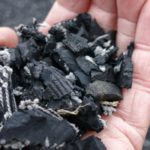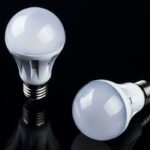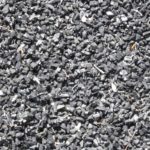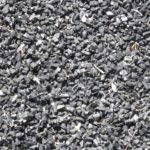The importance of mulch to your garden can’t be overemphasized. It first helps conserve soil moisture, suppress weed growth and erosion, stabilize soil temperature, and increase the soil’s overall health. Mulch can be obtained from different materials, and each one offers its own pros and cons. One popular option that you may be considering is rubber mulch, but will it attract bugs to your garden?
Rubber mulch doesn’t attract bugs to your garden because there is no edible part for the pests to eat, no nesting material to make homes with, and no algae or fungi. It also has some disadvantages, however, including its inability to decompose, and potential to become a fire hazard.
Let’s take a closer look at rubber mulch and why it won’t attract bugs to your yard. We’ll also compare rubber mulch to other types of mulch.
What Is Rubber Mulch?
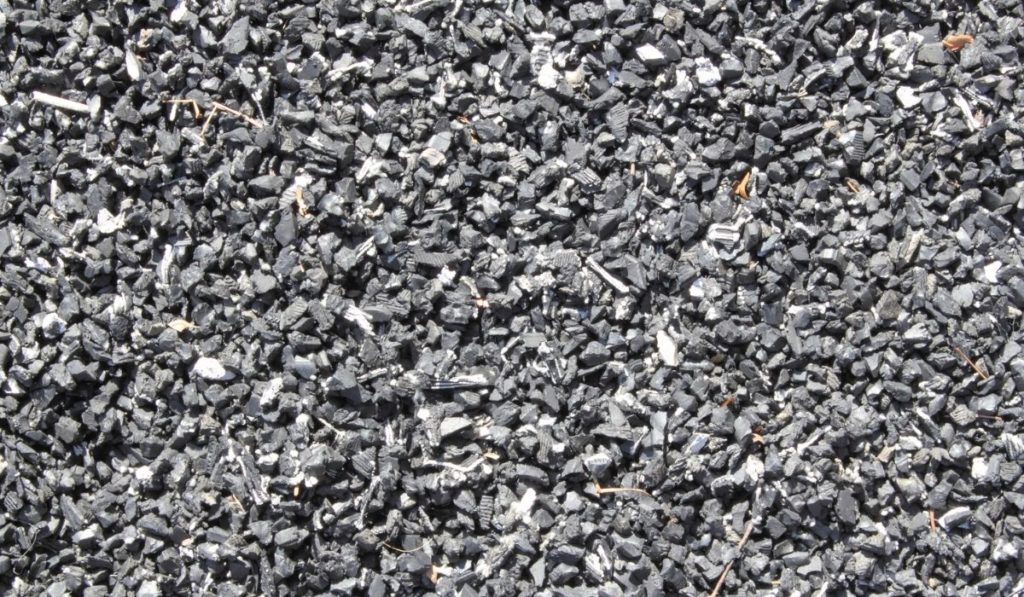
Rubber Mulch, just like any other mulch, is applied to your garden and helps to improve the overall health of the soil.
It’s manufactured from recycled tires. Rubber Mulch has increased in popularity since it provides a better and more sustainable way of recycling tires. It’s available in different colors such as cedar, black, and brown (all on Amazon).
Is Rubber Mulch Better Than Regular Mulch?
Regular mulch is biodegradable and returns organic matter to the earth. Rubber mulch, on the other hand, is not biodegradable and doesn’t enrich the soil or increase the soil’s biodiversity through its decomposition.
Rubber mulch doesn’t absorb water and, as such, it inhibits the growth of fungus and mould, while regular mulch absorbs water and increases the growth of fungus and mould. Rubber mulch is also heavier than regular mulch and, so it doesn’t blow away or disintegrate in the poor weather.
Rubber mulch is generally much easier to maintain than regular mulch. Rubber mulch is more expensive initially; it is, however, cost-effective in the long run.
The best mulch material ultimately depends on your needs, as both options have advantages and disadvantages. You now have a responsibility to weigh the pros and cons of each option and choose the option that works best for you.
Will Rubber Mulch Attract Bugs to Your Yard?
Outdoor bugs such as ants and termites usually cause a lot of damage to gardens and their exteriors. One of the fantastic benefits of rubber mulch is that it doesn’t attract these usual outdoor bugs.
Very few ground cover methods can boast this perk, asides from cedar chips that can prevent the presence of beetle, moths, and cockroaches. Rubber mulch is effective against pest infestations for the following reasons:
It Doesn’t Provide Food to Pests
Rubber mulch offers no food for the pests to eat, unlike organic mulching materials like wood chips and straw that serve as food for termites and ants. If you store wood mulch near other wooden items in your shed, termites can get to them quickly and pose a substantial structural and financial problem.
Rubber mulch, on the other hand, doesn’t pose this problem and protects against these pests to your garden and surrounding structure.
No Nesting Material for Pests
Ants, mice, and birds often use organic mulches as nesting materials for their homes. If you have a garden filled with organic mulch, you’ve made it a target for these creatures to come in as they like.
This will disturb the growth of your plants. Rubber mulch, on the other hand, doesn’t have any such materials for animals to turn into a nest.
Rubber Mulches Don’t Have Algae, Fungi, or Snails
Snails are mostly found on grassy areas and areas covered with moss. As wonderful as snails can be, they can cause a lot of damage when it starts eating away at your plants. Ru
ber doesn’t encourage the growth of algae and fungi, and as such, you can be confident that your leaves and flowers are protected from snails.
What Are the Disadvantages of Rubber Mulch?
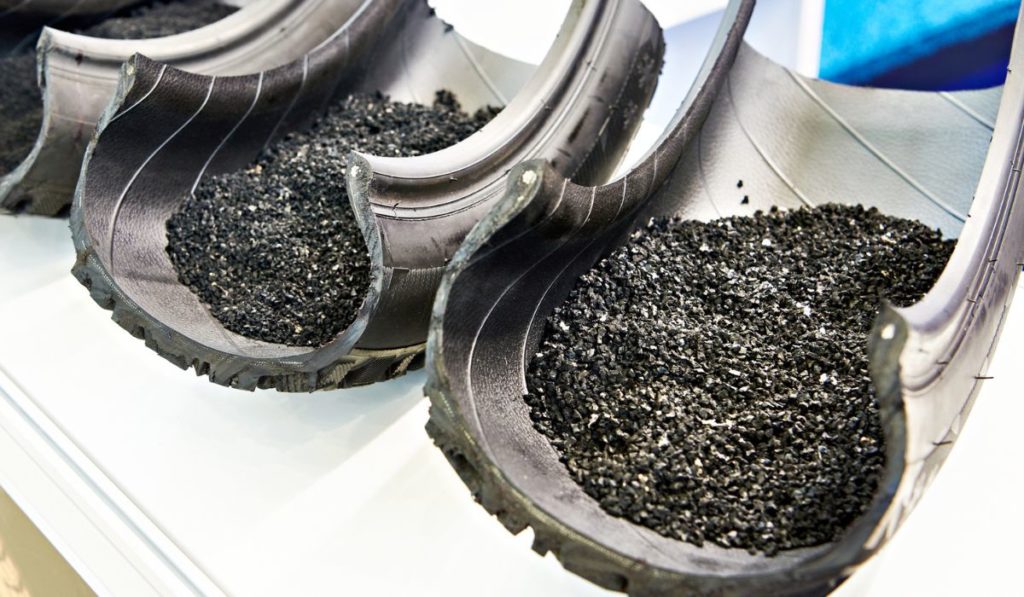
As advantageous as rubber mulch can be, it also has its disadvantages. Some of such disadvantages include the following;
It Contains Harmful Chemicals
Chemicals are used in the manufacture of rubber. Zinc is the most common chemical found. As the rubber gets heated by the sun or gets older, it begins to release these chemicals and can negatively affect the soil.
High levels of zinc in the soil can affect the health of the soil and the plants. It would be harmful to use rubber as mulch for a soil that is already rich in zinc.
It Doesn’t Decompose
Rubber mulch is not organic and therefore doesn’t decompose. Consequently, it doesn’t provide the soil with organic material.
It Can Pose a Fire Hazard
Rubber mulch contains petroleum, which is more likely to catch fire from a nearby flame or heat source. When it does, the fire burns faster, making it quite difficult to put out.

